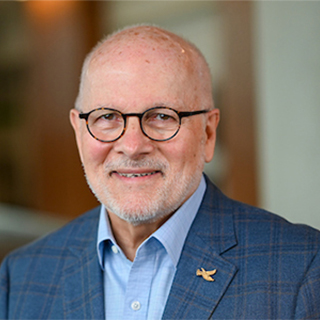The Tiger Cage
The Tiger Cage Business Idea Competition is held annually to identify and support innovative early-stage products or services ideas created by Auburn University students.
- If you have an idea for a new business venture and are looking for an opportunity to secure early-stage seed funding to incubate your idea, this program is designed for you. You will have the opportunity to describe your startup idea, pitch it to a seasoned group of judges playing the role of investors, and potentially win startup capital that will help jumpstart your business.
- You will compete for a share of $100,000 in startup capital, sponsored by the Harbert College of Business as well as a $5,000 innovation award sponsored by the Thomas Walter Center for Technology Management
- Competing teams will have access to mentors from the Auburn family of business professionals, entrepreneurs-in-residence, and other successful entrepreneurs.
Required submission materials
- A 250-word summary of your business idea. This will be used to introduce the judges to your business concept. Clearly state the problem you are addressing, your solution, and the market opportunity.
- A one-page Business Model Canvas that describes your business model. You can find the Business Model Canvas template and additional information at businessmodelgeneration.com/canvas.
- Three to five PowerPoint slides that describe the problem you are addressing, your solution, and the market opportunity. Your slides should be designed to interest a panel of angel investors, venture capitalists, entrepreneurs, and experts experienced in business development and funding. Your goal is for members of the judging panel to see the market potential of your idea and want to learn more.
- A video, up to three minutes in length, describing your business idea, your business model, and the problem it is designed to solve.
A series of workshops, conducted by Auburn faculty, staff, entrepreneurs-in-residence, and other guest speakers, will be offered to assist you in preparing to compete in the event. You will also have the opportunity to schedule individual coaching and mentoring sessions.
Tiger Cage Rounds
Tiger Cage competitions are often broken into several rounds to allow judges plenty of opportunity to award the best ideas. Check out the details below for more information.
Eligibility and Guidelines
- Individuals and teams of up to six Auburn students are eligible to enter. This is a competition for Auburn University, Auburn University Montgomery undergraduate and graduate students, and Southern Union State Community College students. On-campus and online students are eligible to participate. Students enrolled in Fall Semester 2025 classes from any school, college, or academic department can participate. Students planning to graduate at the end of the Fall 2025 Semester may participate.
- An active student, or Fall 2025 Semester graduate, must lead the team but recent Auburn alumni (within one year of graduation) can join teams.
- We strongly encourage teams to be inter-disciplinary and consist of a minimum of three members, however, one-person “teams” are permitted.
- Teams that have received prior outside investment from venture capital firms, private investors, or industry sources are not eligible to compete.
- Previous Tiger Cage first place winners are not eligible to compete.
- All entry materials will be treated as confidential. The only individuals with access to the entry materials will be judges and members of the event faculty and staff. No other provisions are made to protect intellectual property.
- Startup capital awards will be granted only to seed the startup of the submitted idea and will be paid out in stages according to mutually agreed-upon milestones and proper documentation. No substitutions or pivots are permitted without the approval of the Director of the New Venture Accelerator.
- The Harbert College of Business reserves the right to disqualify, at its sole discretion, any team participating in the competition at any time, for any reason. Reasons for disqualification include, but are not limited to, plagiarism and any other form of academic dishonesty, misrepresentation, misappropriation, or infringement of the intellectual property of others, as well as any failure to comply with these guidelines. Disqualified teams shall forfeit any and all awards and other benefits.
- Only one submission per student team is permitted.
Questions: Contact Lou Bifano, Director, New Venture Accelerator (loubifano@auburn.edu)
Student workspace is available in the New Venture Accelerator located in the Research and Innovation Center (Suite 101, 540 Devall Drive)
Previous Tiger Cage Winners
Contact Us
Have questions about the Tiger Cage competitions? We can help.


 Degrees & Programs
Degrees & Programs
 Faculty & Staff
Faculty & Staff
 Career Development
Career Development
 Recruiters & Industry
Recruiters & Industry